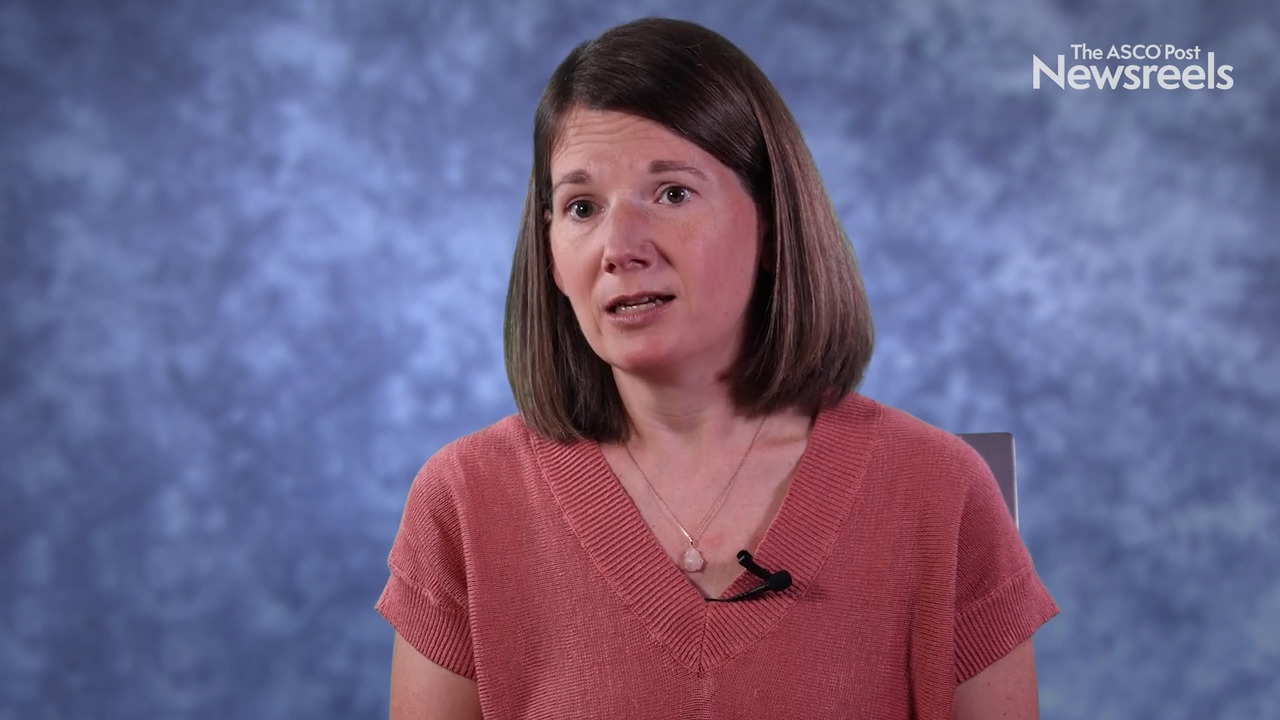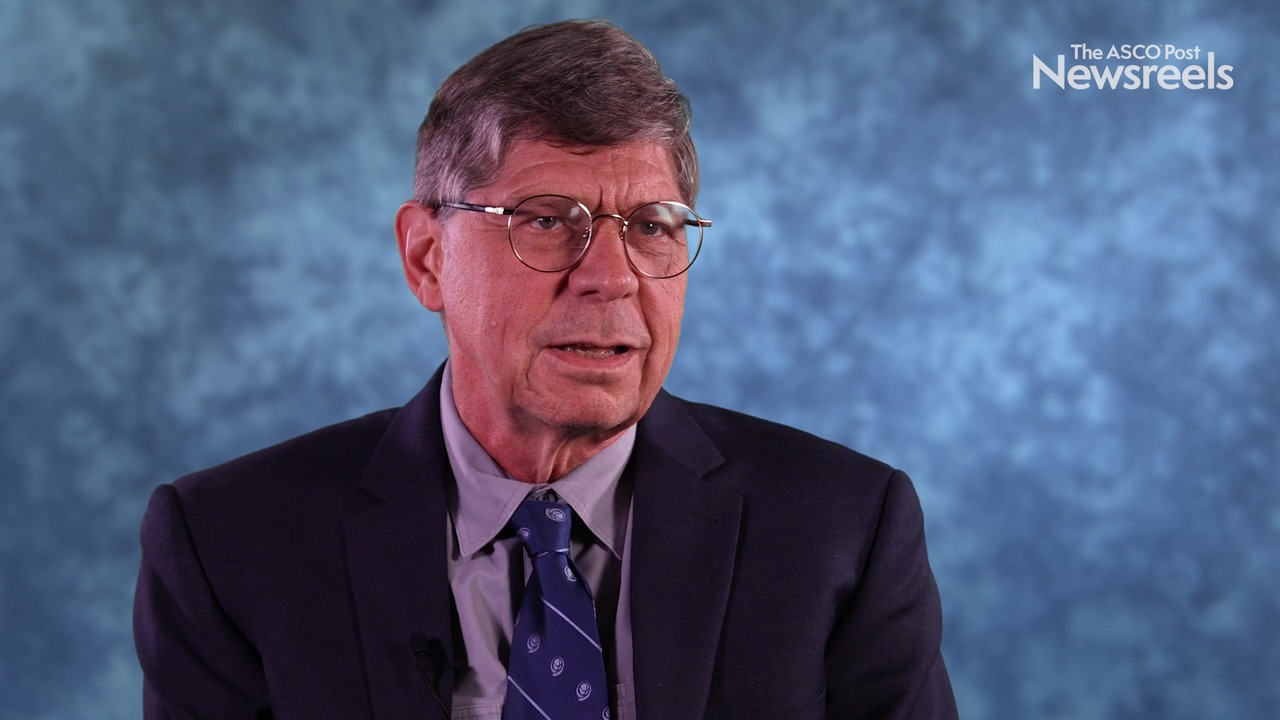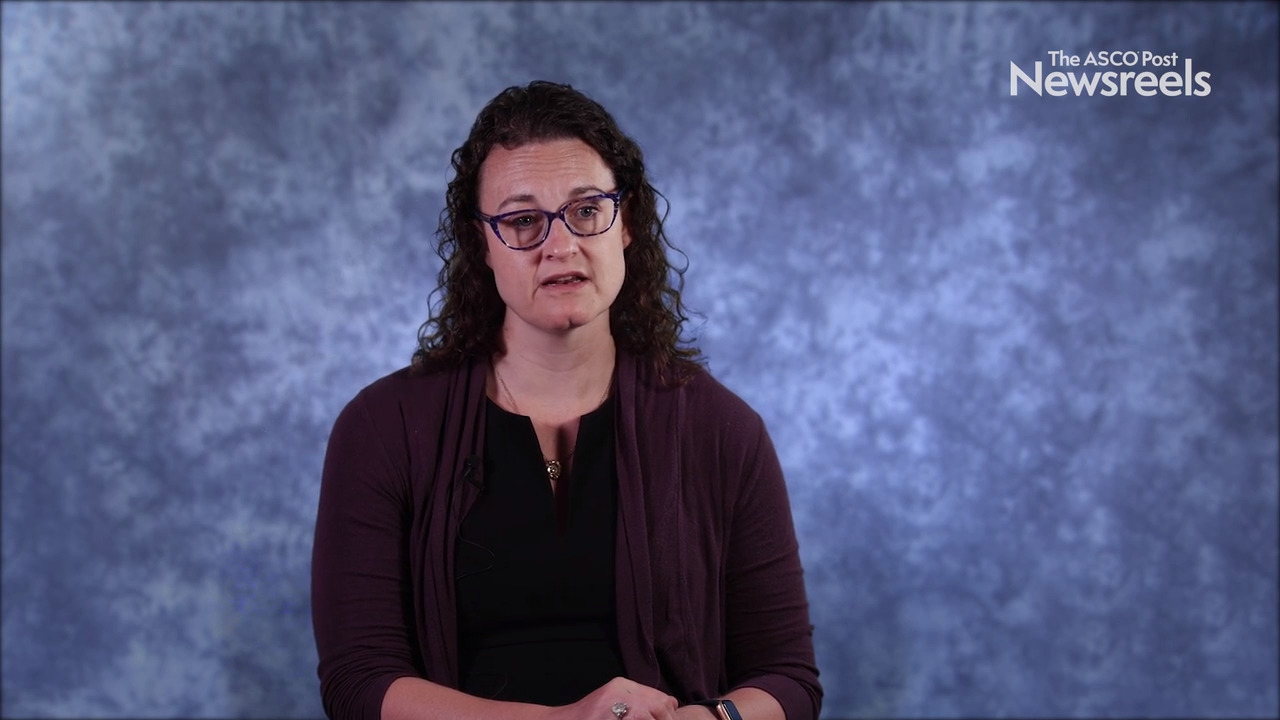Manali I. Patel, MD, MPH, on Community-Based Intervention and Cancer Care Disparity
2021 ASCO Quality Care Symposium
Manali I. Patel, MD, MPH, of Stanford University School of Medicine, discusses data suggesting that community health workers and innovative payer models can better engage low-income and minority patients with cancer, improve their health-related quality of life, and reduce unwanted and unnecessary acute care.
The ASCO Post Staff
Katherine E. Reeder-Hayes, MD, MBA, of the University of North Carolina at Chapel Hill, discusses the timeliness of breast cancer care for Black women compared with non-Black women in North Carolina. Her data showed that greater geographic variation exists in the timeliness of breast cancer care for Black women, with regions surrounding larger urban centers having the largest disparities.
The ASCO Post Staff
John V. Cox, DO, MBA, of The University of Texas Southwestern Medical Center, summarizes his Joseph V. Simone Lecture, in which he stressed the need for coordinated care among practices. The concept of oncology medical homes, he says, has evolved to a broader-based model in which oncologists cooperate with other practices to manage patients and their comorbidities with optimal outcomes. Professional organizations such as the American College of Physicians and ASCO can provide clinicians with the tools they need to engage in this future of health care.
The ASCO Post Staff
Divya Gupta, MD, of the Stanford Cancer Center, discusses an intervention utilizing a computer model and lay care coaches to improve advance care planning conversations with patients who have metastatic cancer. The study, Dr. Gupta reports, showed a trend toward less intensive care for patients at the end of life.
The ASCO Post Staff
Sarah S. Mougalian, MD, of Yale Cancer Center, discusses the increasingly common problem of long wait times for access to oncology care. Her team developed a next-day access program in several of Yale’s oncology services, which was well received by patients and decreased the time to first visit.
The ASCO Post Staff
Benjamin W. Corn, MD, of Shaare Zedek Medical Center in Jerusalem, discusses hope: what it takes for hope to thrive; how he and his colleagues are helping patients and providers become more hopeful through workshops; and his collaboration with the Southwest Oncology Group to aid patients, through hopefulness, to better adhere to treatment regimens.





